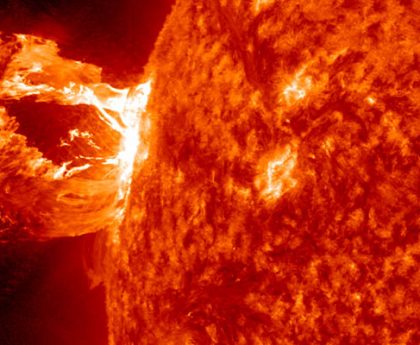The most potent and significant object in our solar system is the sun, also known as “sol.”
It is also by far the heaviest object. We now have a better understanding of the mass of our sun thanks to recent technological developments.
How much does the sun weigh in pounds? According to estimates, the sun weighs 4,385,000,000,000,000 pounds. In other words, the sun weighs the same as 330,060 Earths!
Continue reading and you will learn more about sun weight.
Table of Contents
How Much Does The Sun Weight In Pounds?
The sun is one of the solar system’s heaviest stars. There are two of the heaviest elements in it: hydrogen and helium. The approximate mass of the sun is 1.989 x 10^30 kg (4.18 nonillion pounds).
It is even heavier because the sun has a strong gravitational pull.
The Sun Is Thought To Weigh About 333,000 Times As Much As The Earth.
In other words, if you put the entire mass of the solar system on a scale, the sun would be heavier than everything else put together.
Naturally, due to its great distance, we are unable to weigh the sun.
However, by examining the orbits of planets and other solar system objects, scientists were able to arrive at this estimate.
Scientists can determine the mass of these objects by observing how they are impacted by the sun’s gravity.
How Are We Impacted By Sun’s Weight?
We are impacted in a variety of ways by the sun.
- In the beginning, the Earth is kept in orbit by the gravity of the sun. Without the sun’s gravity, the Earth would fly off into space.
- Second, the tides are influenced by the gravity of the sun. Ocean levels rise and fall as a result of the sun’s pull on the Earth and the oceans.
- Last but not least, we are impacted by the sun’s gravity more covertly. Due to the sun’s immense mass, spacetime is bent around it.
In other words, things that are nearer the sun move there more quickly than things that are farther away.
As a result, time appears to move more quickly close to the sun due to gravity.
Different Layers Of The Sun
- Hot core
- Radiative zone
- Tachocline
- Convective zone
- Photosphere
- Atmosphere.
The sun is 109 times wider than the Earth, with a diameter of about 864,000 miles. The size of the sun is such that a million times as much of the Earth could fit inside.

On The Sun, How Much Does A People Weigh?
Your weight would be approximately 27 times greater if you could stand in the sun than it is now.
On the sun, a person weighing 200 pounds (90 kg) would weigh 5,400 pounds (2,449 kg)!
What Will Happen If The Sun Lost Weight?
The planets in the sun’s orbit would be significantly affected if the sun went on a diet and lost weight.
Our Solar System receives the vast majority of its heat and light from the sun, and its gravity holds the planets where they belong.
The sun’s gravitational pull would weaken if it lost mass, and the planets would start to stray from it.
Furthermore, Earth would become extremely dark and cold due to the sun’s loss of heat and light, making it possible for any life forms that may exist elsewhere in the Solar System to survive there.
In other words, the solar system would be greatly affected, possibly to the point of destruction, if the sun lost weight.
Importance Of The Sun’s Weight
The sun’s mass is significant because it generates the gravitational pull that keeps the planets in their orbits around it.
The planets would be propelled into outer space if the sun’s gravity were absent.
Tides are also impacted by the gravity of the sun. The moon’s force for producing tides is about half that of the sun.
However, due to its size, the sun exerts a much stronger tidal force than the moon.
Star clusters and galaxies are formed under the gravitational influence of the sun.
The gravitational attraction between stars causes star clusters and galaxies to form as a result of the star’s attraction to other stars.
There wouldn’t be any galaxies or star clusters without the gravity of the sun. In conclusion, the sun’s mass is important because it influences both planetary orbits and galaxy formation.
Summary
The sun, which makes up the bulk of the solar system and accounts for 99.86% of its mass, is the largest object in it.
The Sun is estimated to weigh 4.18 nonillion pounds or 1.9 nonillion kilograms. The Sun, which makes up 99.86% of the solar system’s total mass, is the solar system’s largest object.
The mass of the Sun is greater than 330,000 times that of the Earth.
Also Read: Can You Put Solar Panel On A Patio Cover?





